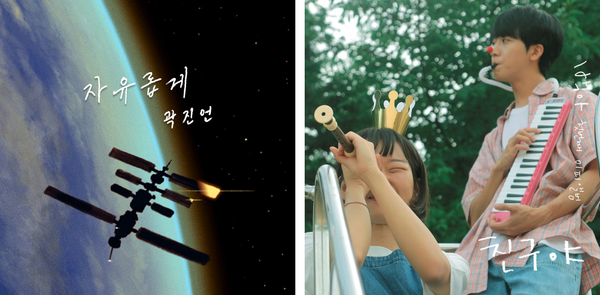In terms of music, last year was a good one. Two songs I will hold onto dearly for years to come, “Freely” by Kwak Jin-eon, and “Bridge” by Baek A, were released within it. When “Bridge” first came out, I couldn’t help but listen to “Freely” right after. The two were reminiscent of each other. The lyrics of both touch on themes of longing and reassurance, but you can feel these even without understanding the lyrics. With a scratchy, cassette tape-like sound, the production of both songs goes for the “80s feels”. The nostalgia they evoke is enough to bring out the melancholic comfort of the songs.
Musicians are not the only ones that exploit times-gone-by to their advantage. In the past week alone, I watched at least two pieces of entertainment set in the past. The thriller series Mindhunter, and the most recent big screen adaptation of the supervillain Joker are both set in the 1980s. If you haven’t been living under a rock for the past few years, you would know that these are not exceptions. All aspects of pop culture seem to be drenched in nostalgia, especially that of the 80s. Simply look at what people wear around campus. You wouldn’t bat an eye to see your parents wearing the same outfits in old family albums.
This phenomenon is not one unique to our time. As Koreans say, “trends cycle and cycle”. This common resurgence of what was beloved a couple of decades prior is mostly attributed to the demographic of two groups: the “audience” and the “directors”.

As evidenced by the “reboot swarm” that recently plagued Hollywood, audiences indulge in nostalgia and studios have spoonfuls of it ready to satiate them. Despite the lukewarm reception received by this year’s Aladdin, people bestowed the crown of “highest-grossing animated film” upon The Lion King only two months later. People can’t help themselves from reminiscing to the “good old days”. Nostalgia has been proven to induce feelings of comfort, and at times, even a physical sensation of warmth. Although there is a bitterness to nostalgia, the feeling can still be intoxicating. Thinking back to the way the rays of the morning sun laid on the blue flowers of my childhood bed can be heart-wrenching. But, the serenity of that scene keeps on sending me back. Those at the top of pop culture know the impact of nostalgia and that it sells; so they keep on selling it to us.
There is also another side to the nostalgia coin. It is not only the consumers of pop culture that look back fondly to these times. The producers also revel in it. Whether it be musicians, directors, or even fashion artists, they all search their youth for inspiration. An obvious, recent example of 80s nostalgia in pop culture is Stranger Things. The show follows the sci-fi escapades of a group of young children in the 1980s, the period in which the show creators, the Duffer Brothers, were born. In the music scene, just look at Bruno Mars’s most recent repertoire: heavily influenced by 1980s funk, music from his childhood. That’s why trends cycle and cycle. Those that experienced certain trends before then grow enough to want to revive and/or relive them.
Despite these being solid reasons for the comeback of film photography, color block jackets, and, surprisingly, even the fanny pack, there is one factor missing. Why do 90s kids like me, born 10 or more years too late, feel attachment to these movies, songs, or styles? Furthermore, why do Kwak Jin-eon and Baek A, also 90s kids, allude to a time in which they didn’t live in? One obvious answer is that the charm of these pieces of pop culture simply transcends time. However, it might just be my pretentious self, but I do feel a sense of nostalgia while listening to Korean folk songs of the 80s. And it seems like I’m not the only one.
Birthed in some corner of the Internet, “anemoia” is defined as “nostalgia for a time you’ve never known”. Despite not being a real word, the fact that someone else decided to give a name to the feeling shows that it may exist outside of my own head. Nostalgia grants us solace as we see the past in rose-tinted glasses. We tend to only remember the good parts and, therefore, feel both relief and sadness when looking back. Perhaps, in a similar manner, since we are only introduced to the good parts of an era, we can even gain that reassurance from times we didn’t personally experience. A time, which in our perspective, seems simpler than the one we are living in. While it may seem slightly ignorant and pretentious, personally, I see nothing wrong with the feeling. Everyone has their own ways of coping. For some, remembering what they can’t remember can be a way.

